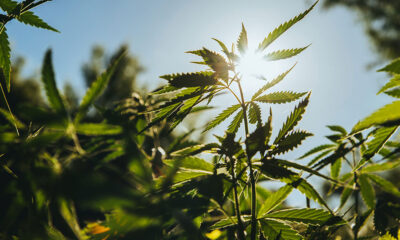
Legal
Nevada Bans Employment Discrimination Over Cannabis Use
Two years after legalizing, Nevada has become the first state to bar employers from discriminating against job applicants on the basis of a positive test for cannabis. Will other states follow the lead of the libertarian-spirited Silver State?
Nevada’s legislature has taken a ground-breaking step toward truly implementing the spirit of the cannabis legalization initiative approved by state voters in November 2016. Under the new law, to take effect at the start of 2020, Nevada employers will be barred from refusing to hire a prospective employee over testing positive for cannabis. Nevada is the first state to pass such a measure.
“As our legal cannabis industry continues to flourish, it’s important to ensure that the door of economic opportunity remains open for all Nevadans,” Gov. Steve Sisolak, a Democrat, said upon officially approving the bill on June 5. “That’s why I was proud to sign AB132 into law, which contains common-sense exceptions for public safety and transportation professionals.”
Assembly Bill 132 reads: “It is unlawful for any employer in this State to fail or refuse to hire a prospective employee because the prospective employee submitted to a screening test and the results of the screening test indicate the presence of marijuana.”
There are the inevitable exceptions. As the Nevada Sun reports, the law does not apply to firefighters, emergency medical technicians, workers who operate a motor vehicle or those whose performance could adversely impact the safety of others. This last category is determined solely at the discretion of the employers, so it could prove a significant loophole. But the bill does contain language providing something of a remedy: workers who fail a drug test during their first month at the job will be able to challenge the finding by paying for a second test.
The bill’s co-sponsors, Democratic Assembly members Dina Neal and Edgar Flores, emphasized to the Sun that on-the-job cannabis use is not coming under any legal protection. Instead, the new law aims to address what Neal called “a moral and social dilemma” caused by the ability of drug tests to detect trace amounts of THC in blood or urine weeks or even months after cannabis use.
“I don’t condone marijuana use,” Neal said. “But I don’t want unfairness and discrimination. We were saying marijuana dispensaries can sell to people, but then the people couldn’t work. We had to do something.”
Added Flores: “We needed to ensure we were providing safeguards for marijuana users who are following state law and are trying to get jobs.”
Will Other States Follow?
Adult-use cannabis sales began in Nevada two years ago, pursuant to the initiative approved by the state’s voters in November 2016. Question 2 legalized use and possession of up to one ounce of cannabis by adults 21 and over. Medical marijuana was legalized in Nevada in 2000 — also by popular initiative
But will other states follow the lead of the traditionally libertarian-leaning Silver State? In one encouraging sign, the New York City Council passed a bill in April that bars employers from requiring job applicants to pass a drug test for cannabis as a condition of employment — and New York state doesn’t even have a legalization law, yet. In Maine, which voted to legalized adult-use cannabis in the same 2016 elections that Nevada did, employers are not allowed to discriminate based on cannabis use, but there are no laws that directly address drug testing.
National legislation that would bar drug-test discrimination in states that have legalized cannabis is now pending on Capitol Hill. The question is not only an issue because 11 states have now legalized, with a further 33 adopting medical marijuana laws that allow use of THC. It is becoming increasingly clear that drug testing often brings back false positives, especially if proper protocols are not followed by the testing lab. And often, they aren’t.
Nationally, about 2.8% of urine-based workplace drug screenings brought back positives for cannabis in 2018, according to Quest Diagnostics drug-testing service. Cannabis was also the most commonly detected illicit drug, according to the service, cited by USA Today.
Nevada also experienced a slight cooling of ambitions for cannabis freedom this month, when the state legislature blocked Las Vegas from opening cannabis lounges until 2021. In contrast, Denver is about to do just that, following a new Colorado law allowing for “social use.
TELL US, have you ever been denied a job opportunity because of your cannabis consumption?






















